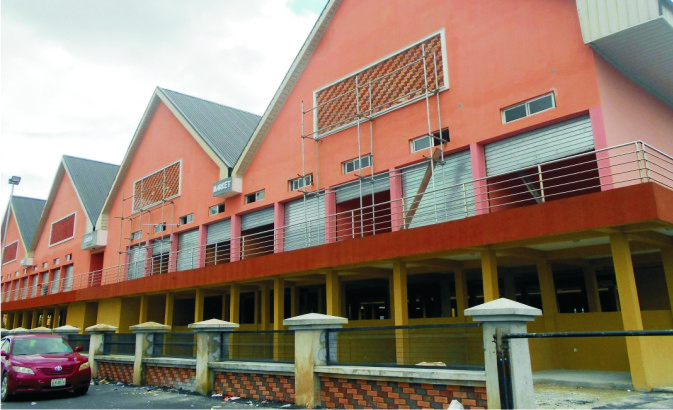Niger Delta
Fruit Garden Market: ‘Wike Saved Many Souls’

The pioneer Chairman of Ogbum-Nu-Abali Fruit Garden Market, Mr Patrick Anyanwu, says Governor Nyesom Wike, has saved many souls by rebuilding and giving N400,000 to each of the traders whose goods and shops were destroyed during the inferno that engulfed the market.
Mr Anyanwu, who said this during an interview with The Tide recently in Port Harcourt, described the Governor as a good and kind leader with humility and sensitivity, noting that his gesture saved many families whose hopes of livelihood would have been precarious after the fire incident.
According to him, “there is no governor like Wike who has done that he did in Rivers State. He saved a lot of lives. When the market was gutted by fire, he gave each of the traders N400,000 and now he has rebuilt the market. All efforts by the church close to the market to buy the land failed curtseys of Wike, we thank him graciously”.
He urged governors of other states and future Governors of the state to emulate Wike’s leadership style and charged traders of the market to reciprocate his kind gesture by keeping the environment and the structures clean, and also imbibe the spirit of maintenance culture in order to attract more good things to themselves, while giving their unalloyed support and cooperation to the Wike-led government.
Anyanwu used the opportunity to appeal to the Governor for the canalization of the Rumuomoi-Rumuorosi-Rumuola-Rukuruka river to save the residents of the area from the incessant flooding experienced during rains, noting that the situation has for years caused several untold damages to the people.
Anyanwu, who is also the Vice Chairman of a street environmental committee in Rumuomoi community, said several appeals to previous administrations concerning the problem of flooding in the area did not yield result.
“The people residing around this area will be very happy if the Governor, well known for his listening ear and projects execution, comes to their aid in this regard”, he said.
Also speaking, the chairman, tomato section of the market, Mr Fubara Mathew who appealed that the main traders should be allocated the shops before members of the host community to give them a sense of belonging and thanked the Governor for his kind gesture.
A one-time secretary of the market, Mr Vincent Okeh, enjoined the Fruit Garden Market traders not to do anything that would destroy the good work done by the Governor, saying “you must reciprocate the work and keep the market clean, obey the rules and regulations of the market and be law-abiding in all your dealings at the market”.
Shedie Okpara
Niger Delta
Oborevwori Launches Medical Outreach For Children With Special Needs

Niger Delta
UniCal Commits To Nursing Education Dev In C’River

Niger Delta
Agency Demolishes Illegal Roadside Structures In Delta N8 by … Clears Street Traders

-

 Politics4 days ago
Politics4 days agoAPC Releases Adjusted Timetable For Nationwide Congresses, Convention
-

 Sports1 day ago
Sports1 day ago2026 WC: Nigeria, DR Congo Awaits FIFA Verdict Today
-
Sports4 days ago
DG NIS Wants NSC Board Constituted, Seeks Increased In Funding
-

 Business4 days ago
Business4 days agoCustoms Seek Support To Curb Smuggling In Ogun
-

 Featured4 days ago
Featured4 days agoINEC Proposes N873.78bn For 2027 Elections, N171bn For 2026 Operations
-

 Sports4 days ago
Sports4 days agoSWAN Rivers Set-up Five Functional Committees
-
Sports4 days ago
NSC Disburses N200m Training Grants To 26 Athletes
-
Sports4 days ago
‘NTF Will Build On Davis Cup Success For Brighter Future’

